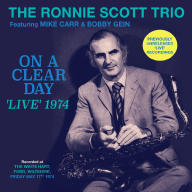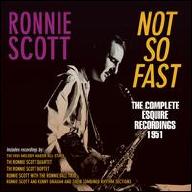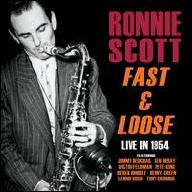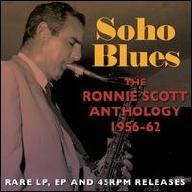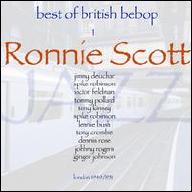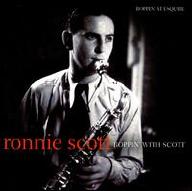Despite his travels Scott remained a linchpin of the growing London bop scene, and in late 1948 he co-founded Club Eleven, the first U.K. club devoted to modern jazz. During this time he developed the lyrical but harmonically complex style that would remain the hallmark of his career, first backing drummer Jack Parnell before finally forming his own band in 1953. The nine-piece group made its public debut in conjunction with a London appearance by Norman Granz's Jazz at the Philharmonic touring revue -- working from arrangements by trumpeter Jimmy Deuchar, the Scott band's debut proved a landmark moment in the history of British jazz, in many respects heralding the true starting point of the postwar era. Not all of Scott's instincts were sound -- in 1955, he briefly assembled a full-size big band, to disastrous creative and commercial results -- but when he officially dissolved the group in 1956, he was a household name throughout Britain. In 1957 he co-founded the Jazz Couriers with fellow tenor saxophonist Tubby Hayes, scaling to even greater heights of fame. The Jazz Couriers amicably split in 1959.
Around this time Scott began to again entertain the notion of a London-based jazz club in the tradition of the landmarks dotting New York's 52nd Street -- along with Pete King, a longtime collaborator who'd recently retired from active performing, he borrowed the money necessary to lease the building at 39 Gerrard Street and on October 31, 1959 opened Ronnie Scott's Club for business. Scott himself co-headlined the opening night along with Hayes and Parnell -- sales were promising, but the venue only began reaching true critical mass in 1961 when it hosted its first American act, Scott favorite Zoot Sims. In the months to follow, Ronnie Scott's was the setting of performances by a who's who of American tenor icons including Dexter Gordon, Roland Kirk, Stan Getz, Sonny Stitt, Ben Webster, and Sonny Rollins. In late 1965 the club moved to its present location on Frith Street, where before the end of the decade it would host everyone from Ella Fitzgerald to Albert Ayler, becoming the epicenter of London's jazz community. Although the club consumed much of his time, Scott continued touring with a quartet featuring pianist Stan Tracey -- during the late 1960s, he also spearheaded an eight-piece group with whom he created the most idiosyncratic and experimental music of his career. At the time of Scott's death on December 23, 1996, his namesake club was perhaps the most famous jazz venue in all of Europe. ~ Jason Ankeny, Rovi


